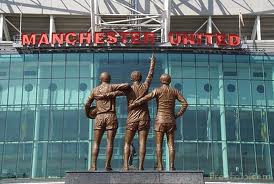February 21 – Manchester United’s latest financial results paint a worrying picture, with revenues dropping to £198.7 million for the final three months of 2024 – down 12% from the same period last year.
The club’s operating profit has plummeted by a staggering 88.7%, falling from £27.5 million to just £3.1 million, highlighting the financial strain at what was once a monetary juggernaut in English sport.
Even a commercial revenue boost of 18.5% to £85.1 million hasn’t been enough to paper over the cracks.
The biggest culprit? A brutal 42% plunge in broadcast revenue, down from £106.4 million to £61.6 million. Without Champions League football, United are missing out on a financial goldmine – turning their Europa League campaign from an inconvenience into an absolute necessity.
Winning the competition should be United’s top priority, as securing a Champions League spot could be worth well over £100 million in prize money, sponsorship bonuses, and gate receipts.
United’s financial woes are compounded by increasing debt, which has risen from £506.6 million to £515.7 million, with £414 million still owed in transfer fees. Reports show that since the Glazer family’s leveraged takeover in 2005, the club has now paid over £1 billion in interest repayments alone.
Despite the commercial boost from the front-of-shirt partnership with Snapdragon, the club’s spending on managerial upheaval has been costly. The latest results include £14.5 million in “exceptional items,” covering the £10.4 million paid to sack Erik ten Hag and his coaching staff, as well as the £4.1 million cost of hiring and then firing sporting director Dan Ashworth within just five months.
Meanwhile, the £11 million cost of hiring new head coach Rúben Amorim and his staff has yet to appear in the books, with United opting to spread that expense over their contracts.
At the same time, the club has made headlines by implementing bizarre cost-cutting measures, making over 200 redundancies and controversially raising matchday ticket prices to £66 per game – with no concessions for children or pensioners.
Meanwhile, the club continues to contribute to the wages of out-of-favour duo Marcus Rashford and Antony, who earn €525,000 per week between them, despite plying their trade at Aston Villa and Real Betis until the end of the season.
United’s financial position also raises concerns over compliance with the Premier League’s Profit and Sustainability Rules (PSR), which allow clubs a maximum loss of £105 million over a three-year period. While some expenses – such as infrastructure and youth development – are excluded from PSR calculations, United’s total losses over the last five years exceed £370 million, adding further pressure on the club to return to the Champions League as soon as possible, securing the revenue boost that comes with it.
The only method of qualification will be through winning the Europa League, with United currently 15 points off a UCL spot in the Premier League and a club-wide morale that shows no sign of a late jump up the table.
The FA Cup win last season, which secured Europa League qualification, has provided a financial lifeline, but the club now faces a defining few months. Without a return to Europe’s top competition, United’s financial struggles could deepen even further. Currently sat in 15th place in the Premier League, you wouldn’t bet on them.
Contact the writer of this story, Harry Ewing, at moc.l1745056191labto1745056191ofdlr1745056191owedi1745056191sni@g1745056191niwe.1745056191yrrah1745056191

